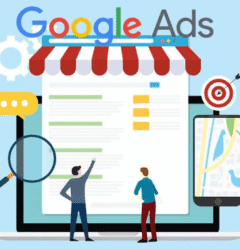In the business world today, digital marketing stands out as one of the most effective means available for firms to connect with their audience, create brand attention, and make sales. However, providing digital marketing services and selling them is not the same thing. A lot of agencies and freelancers fail not due to a lack of capability, but because they don’t know how to sell what they can do. Regardless of whether you’re promoting SEO, social media marketing, content marketing, pay-per-click advertising, or a full digital marketing bundle, closing deals relies on how successfully you position, display, and execute your services to prospective customers. To sell digital marketing services, you must have a good grasp of your ideal clients, their issues, and exactly how your services can address their concerns. It’s not so much about demonstrating technical proficiency; it’s about establishing credibility and making your services worth something to each client’s specific business objectives. Clients don’t really care about impressions or traffic unless it results in tangible outcomes. Thus, you need to focus more on the value you deliver rather than the features of your services.
Understand your niche and ideal client
Just before you think about selling anything, you should know to whom you are selling it. Digital marketing does not come in a one-size-fits-all package. A campaign that can work for a restaurant will not work for a law firm. This is the reason why you start with your niche and what your ideal client looks like. Niche specialization helps you stand out from the competition within a crowded space; and gives you greater details about the goals and challenges of that niche. After choosing your niche, develop a client persona. Study their business model, what services they typically need, what their problems are, how they measure success and their budget. This contributes to developing more targeted pitches and approaches that get at their pain points directly.
Build a strong offer based on outcomes
Clients aren’t purchasing social media or SEO—They’re purchasing results. That may be more website visits, more conversions, more calls, or improved online visibility. Rather than selling generic products, frame your proposition about results. A great proposition needs to be clear, exact, and results-oriented. It also needs to include evidence to support it. Case studies, client testimonials, and performance data can make your offer more convincing. If you’re new and don’t have results yet, offer to work at a discount or for free for a short period just to build proof.
Offer free audits or consultations
Offering free consultations or audits is an excellent way to get one’s foot in the door. It helps you showcase your expertise while providing potential leads with something useful. You can audit the SEO of a site, review their social media footprint, or provide them with suggestions on how their competitors are promoting. This component also makes you a helpful expert instead of an aggressive salesperson. If done correctly, a free audit puts the client’s mind at rest and shows them the opportunities.
Keep your proposal simple and transparent
Clarity is essential during a presentation proposal. Use templates less, as much as possible. Make every proposal unique to the client, their problem, their objectives, and their goals. Make a clear attempt to set expectations, specify how the client’s progress will be measured. The clearer and more unique your proposals are, the better chance you have in getting a yes.
Offer tiered Packages or custom plans
Customers prefer to have control over what they spend. Having various packages of services or pricing levels to choose from allows them to decide. Your entire array of services might be out of budget for a small business, but a “basic growth” package could be appropriate to begin with.
As time passes, as you establish trust and provide results, you can upsell into higher packages. Always leave the door open for scaling, and ensure that pricing is high enough to indicate the value and work involved.
Nurture your leads consistently
Most clients do not purchase at the first meeting. That is why a follow-up is so important. Instead of merely inquiring if they are ready to proceed, however, continue to cultivate that relationship. Send useful resources, new success stories, or industry-related news.
Keep learning and evolving
Digital marketing is constantly changing. Platforms get new updates, algorithms change, consumer behavior changes. To stay relevant and convincing in your selling strategy, you must remain informed. Attend webinars, take courses online, read industry blogs, and test new ideas on your own properties.
The more informed and up to date you are, the more comfortable you will be communicating with prospects, and answering questions. Ongoing learning can even be a marketing tool itself—clients want to hire someone who is not just good now, but will continue to be good in the future.







